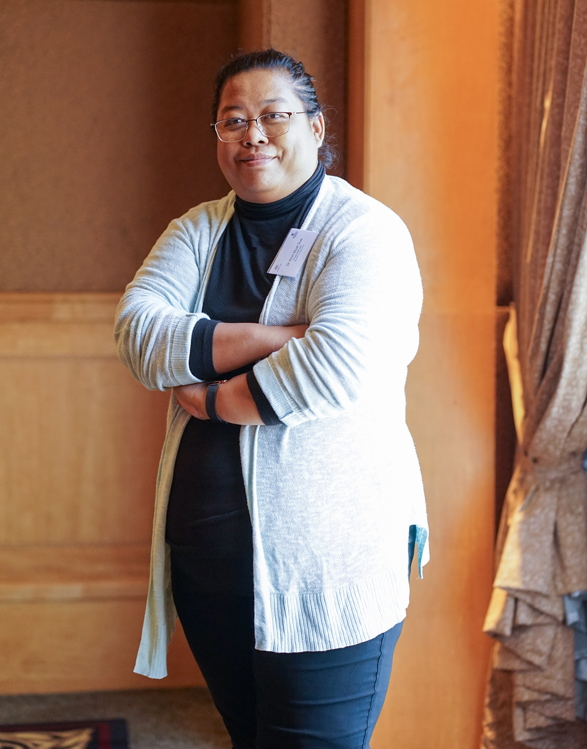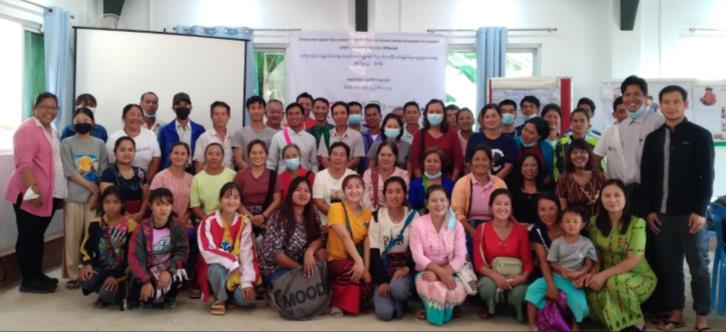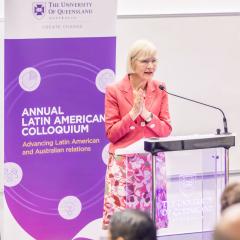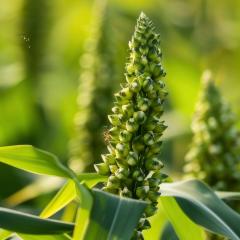Australia Awards alum, Dr Khin Myat ‘Soe’, has worked in agriculture and aquaculture for more than 20 years improving agriculture, fish farming and the lands and waters involved in making this vital food source resilient.

She was one of 21 participants who recently completed The University of Queensland International Development-led course ‘Responding to the Climate Change Challenge’, facilitated by Australia Awards Myanmar.
Climate Change is significantly affecting food security in Myanmar with one in four people suffering acute food insecurity.
Since September 9, heavy monsoon rains and the remnants of Typhoon Yagi have caused severe flooding in Myanmar displacing many and with hundreds losing their lives.
Extreme weather events are one negative impact of climate change; so too rising sea levels, increased dry spells and drought, sea temperature rises and seasonal shifts in rainy or dry seasons affecting agriculture and water supply.
Efforts to implement climate-smart agricultural practices and improve resilience is one way to mitigate these impacts.
Soe finished a project involving climate-smart aquatic food production and inclusive market development for economic growth and poverty reduction for WorldFish Myanmar in August 2024.
“Agriculture, forestry and other land users are the second largest source of emissions globally,” Soe said.
“If people are no longer thinking critically about climate change, we must wake up that it poses a serious threat to food security and can lead to conflict.
“Starting with small actions is important as doing something is better than nothing.”
As an agricultural scientist, Soe has applied her expertise in both agriculture and aquaculture with what she learnt on the Short Course to deliver capacity-building training in agri-aqua farming with zero waste to 3 organisations: Kyauk Thin Pone Institute, Naushawng Development Institute (NDI) and Land Core Group.
Training via online learning, Soe inspired beneficiaries to take action. She went over the difficulties of managing water resources, maximising nutrient cycling, and mitigating climate-related hazards.

“A farmer can effectively achieve zero waste in agriculture and aquaculture by creating a circular system for organic waste,” Soe said.
“They can convert crop residues and food waste into compost, enriching the soil and reducing the need for synthetic fertilizers while also using rice straw for mushroom production."
“Fish waste can serve as a nutrient source for plants, such as through the production of fish amino acids made by mixing fish waste with brown sugar.
"This method not only recycles nutrients but also offers potential additional income streams. By doing so, farmers can minimise waste and enhance resource efficiency, resulting in a more sustainable and productive operation in both agriculture and aquaculture.”
Soe shares her experience on the 'Climate Change Challenge' course
Soe has also collaborated with other participants in the course on their Return to Work Plans (RWPs) to deliver some of this training.
“Working alongside other Australia Awards Short Course participants on our Return to Work Plans has allowed all of us to broaden our network, improve our effectiveness, and better reach a larger audience for climate education,” Soe said.
Soe and 6 other Australia Awards Short Course participants have collectively reached 180 (53 men and 127 women) students and learners (farmers, educators, scientists). They’ve exchanged expertise in areas such as environmentally friendly aquaculture, climate-smart farming practices, and inspiring youth groups from various ethnicities to take action on climate change.
Soe has now moved to in-person training for community farmers in her region. By sharing her expertise in climate change cause and effects, soil health, organic farming practices, climate-smart agriculture and aquaculture, Soe is not only responding to the climate change challenge but training the next generation to secure their own futures.
Learn more about the Global Development Hub
The Global Development Hub is open to all UQ and external stakeholders with an interest in global development work at UQ.



